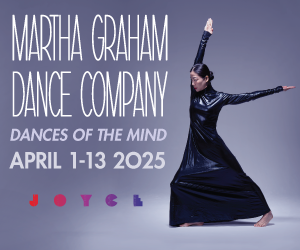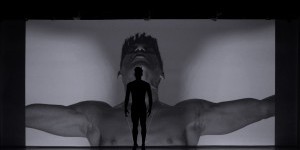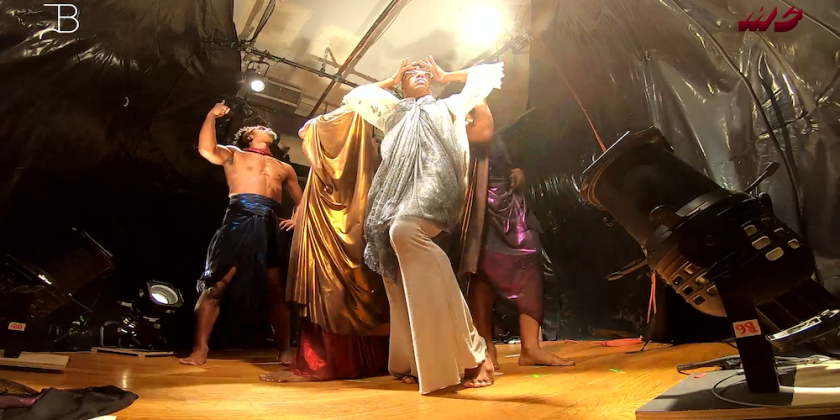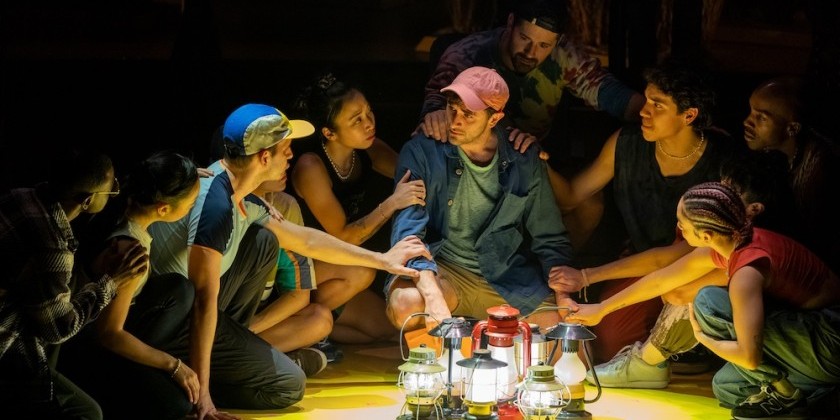Impressions of "afroFUTUREqu##r"

A series of Afro-Futuristic Performances and Talks at JACK
JACK presents: afroFUTUREqu##r
A weekend curated by Thomas F. DeFrantz and niv Acosta
Friday (aka “Frigay”), Oct. 16 at 8 pm
Grisha Coleman and Jaamil Olawale Kosoko, Screenings of Gayniggers from Outer Space (1992) and Karina Aguilera Skvirsky’s Miseria, followed by a dance party until 1 am
Oh! What is in a name. Well, if an evening coined “Frigay” is any indication, you’re in for a treat. afroFUTUREqu##r, curated by Thomas F. DeFrantz and niv Acosta, encompassed a series of Afro-futuristic performances and talks at JACK in Brooklyn, Thursgay through Sungay. Surrounded by JACK’s signature wall-to-wall shiny, crumpled aluminum foil, the atmosphere felt appropriately futuristic and queer.
“Gayniggers From Outer Space” kicks off the evening with a uncomfortable misogynistic approach to intergalactic gayness. This ‘90s film from Denmark has the stylistic trappings of a poorly dubbed, grainy, snap, crackle, and pop of old film. (SPOILER ALERT! If you’re set on seeing this film and prefer the element of surprise, skip to the third paragraph...now) From the planet Anus, an all black male crew, dressed like George Clinton funkadelic castaways, set out to eradicate the universe of female infliction and male oppression. Setting their sights on earth, the captain designates ambassadors for each continent to vaporize vexing female vermin. The oppressed become the oppressors as the gayniggers prepare to re-populate the planet through male-only methods. Surprisingly this re-population occurs NOT in their own image, but rather through a white male vessel. The film fades with an image of a gay white utopia, and while it seems to be a campy comedy, the sexist and racist commentary of this white, blaxploitation flick leaves few people laughing.

Why curate this film you may ask? DeFrantz and Acosta address this question and the suffocating tension in the room with a brief discussion. According to Acosta, afrofuturistic research generated little performance material, which came as a surprise, if not slightly disturbing. What happened to the voices of this movement and where is the documentation? DeFrantz and Acosta pose. DeFrantz insistently advocates dialogue around the film to unpack our experience and acknowledge the resentment the film generates. Depending on who you talk to, we’re not far removed from the sentiments of this film today.
Next, Jaamil Olawale Kosoko shares a collection of poems and is very transparent about the challenges and discomfort of presenting after “Gayniggers From Outer Space”. With a gentle mindfulness to the audience holding space around him, he shares personal, heart-felt poems that span a spectrum from life to death. Perched on a silver stool, resting his white shoes on the bottom rung, he carefully curates which poems to share. The microphone amplifies a gentle tone and familiarity in his voice. The shiny textured foil on the walls hug the soft muted shades of greys and blues covering his frame. “Miracle” speaks of birth, “Pushed” of erotic pre-adolescence discovery, “Naked Angel” of death always dying, and “Kindness” of AIDS, secrets and erasure.

Karina Aguilera Skvirsky’s film “Miseria” follows Kosoko. A female figure walks down the center of an unmoving empty urban street backdrop. Appendages dangle from her breast and hips like elephant trucks. She lipsyncs a song in Spanish about love and suffocation. Electromagnetic noise signals static across the image that rolls like an old TV searching for a signal until the image settles in a different color with a different singing voice. She continues shuffling forward like a displaced nomad in a post-apocalyptic world and I remain as lost about the work as the figure on the screen.
Recombinant rounds out the evening with “Kiki”, a musical instrument that combines a djembe drum, robotic arms, and computerized impulses. Grisha Coleman rotates through movement sequences that map out the space, Michael Krzyzaniak mans the computer to communicate with Kiki, and Kiki breaks the silence with rhythmic base and jingling bells. Recombinant titillates our curiosity about the future of movement, sound, and technology by re-imagining a trio in the present.
afroFUTUREqu##r wraps up Frigay with a dance party that carves out space to boogie away dystopian visions of the past in favor of an elevated futuristic Black queer tomorrow...movement simultaneously swirling within its past, present, and future.
Share Your Audience Review. Your Words Are Valuable to Dance.
Are you going to see this show, or have you seen it? Share "your" review here on The Dance Enthusiast. Your words are valuable. They help artists, educate audiences, and support the dance field in general. There is no need to be a professional critic. Just click through to our Audience Review Section and you will have the option to write free-form, or answer our helpful Enthusiast Review Questionnaire, or if you feel creative, even write a haiku review. So join the conversation.













